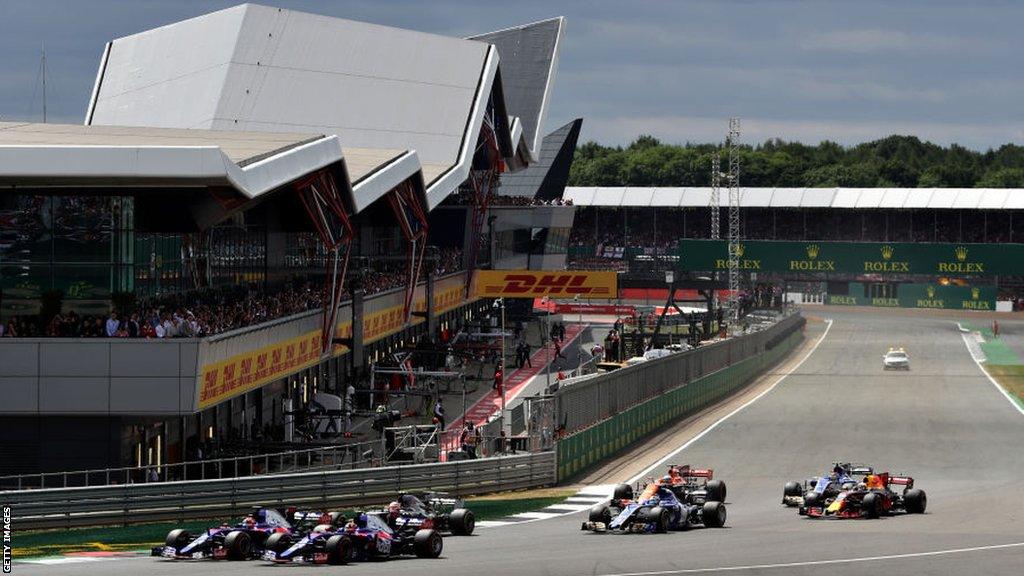British Grand Prix: All you need to know before the race at Silverstone
- Published
- comments
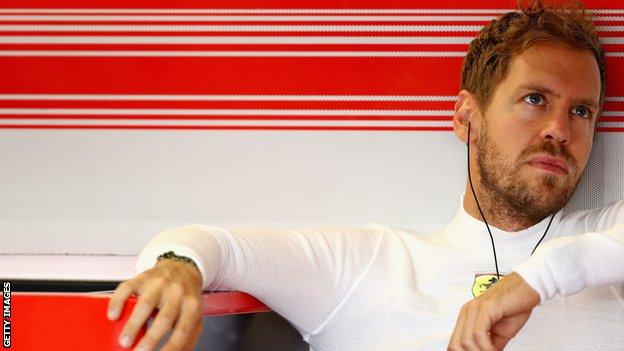
Who will win the race to the fifth world title?
British fans of F1 are among the most committed in the world, and many have expressed concerns in recent months about the looming change in the country's television broadcast landscape in 2019.
Pay TV channel Sky takes on exclusive rights to F1 in the UK next year, and the worry both among those who like to watch F1 and those who take part in it was that this would lead to a potentially catastrophic drop in audiences and exposure.
There is a free-to-air aspect of Sky's contract, which provides for live coverage of the British Grand Prix and highlights of all the other races on a channel that has "90% technical availability".
Until now, the question had been what that would mean, and where F1 would end up. Would it be buried on an obscure channel with limited reach somewhere on the Freeview programme guide, or stay on a mainstream outlet?
BBC Sport has learned this weekend that Channel 4 - which took over the free-to-air rights to F1 in the UK from the BBC in 2016 - is on the verge of concluding a deal to take on this aspect of the contract.
Channel 4's head of F1, Stephen Lyle, is at Silverstone. He would not comment, but sources close to the discussions have confirmed that an agreement for C4 to continue is very close.
This is positive news for both F1 and British fans, because it guarantees that substantial coverage of the sport will still be available to all the population, and the sport will keep a high profile in one of its biggest and most important and influential markets.
C4 has a strong sense of its own brand and mission, and it will be expected to continue to make distinctive, high-quality programmes on its own terms and with its own production and presenting team.
It is not clear when a deal will be confirmed, as there are still a couple of areas that have yet to be resolved between C4 and Sky. But it is expected to be within the next weeks.
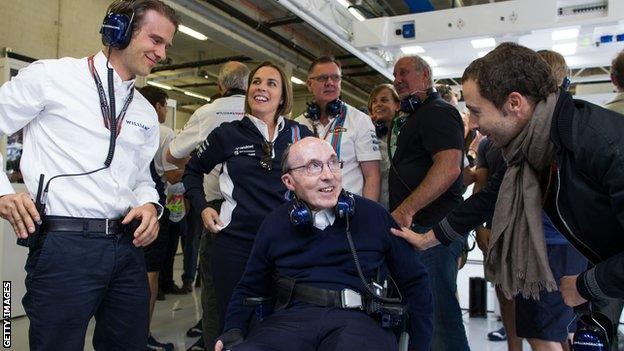
Frank Williams founded the team in 1977
Woe is Williams
Claire Williams said before the weekend that she was dreading the home race for the team her father set up, with which he achieved so much success.
Sir Frank is attending a race for the first time this year at Silverstone, but his team are not performing at the level he expects. Nowhere close.
It was a humbling afternoon for Williams at a track where they have achieved so many landmark moments - their first win as a team in 1979, the first 160mph lap with Keke Rosberg's pole in 1985, Nigel Mansell's heroic fightback in 1987, Damon Hill's win in 1994, after title rival Michael Schumacher's disqualification, a couple of months after team-mate Ayrton Senna's death.
Those were the days of wins and world titles for Williams; now they lie 10th and last in the constructors' championship and likely to finish there if they cannot sort themselves out soon.
At Silverstone, the long corners, some with fast entries, requiring drivers to brake and turn at the same time, are exactly what a car with a major aerodynamic flaw on corner entry does not need.
The Williams has an issue whereby the floor suffers an aerodynamic 'stall' - a break-up of airflow that causes a sudden loss of downforce - when the front wheels turn.
The team said this was to blame for the spins that affected both drivers in the early stages of qualifying - Lance Stroll lost the car terminally at Brooklands on his first lap, causing a red flag, and Sergey Sirotkin at Stowe on his. The Russian was able to rejoin the track, but was slowest of all.
The day before, Claire Williams had described the team's toils as "very difficult, heart-breaking and a little bit soul-destroying".
She is a realist, and she also pointed out that 10th place has financial consequences as well as emotional - it's about a $20m difference in prize money, at a time when Williams are also losing their title sponsor at the end of the year.
"Finding sponsors when you're 10th is not going to be easy piece of work for us," she said. "We had to spend additional money as well to activate our recovery programme," which she said had "identified a number of other weaknesses within the car and the team itself".
"It's not an easy world at Williams at the moment," she concluded.
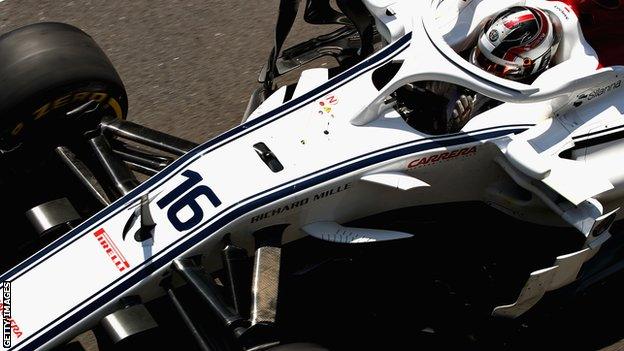
Leclerc: on the move
Leclerc continues his rise
A final word for Sauber's Charles Leclerc, who is fast emerging as a potential major star of the future.
The 20-year-old Monegasque has already been hugely impressive this year - and a week or so ago it emerged that Ferrari had decided to promote him into Kimi Raikkonen's seat alongside Sebastian Vettel next year.
At Silverstone, he was again outstanding, qualifying the Sauber ninth, on a track where the team expected to struggle. He was 0.6secs quicker than team-mate Marcus Ericsson in second qualifying, which the Swede did not progress beyond. That's a huge margin, but it's about his average gap to Ericsson this year.
Leclerc is the talk of the town at the moment in F1, but he is an unassuming young man.
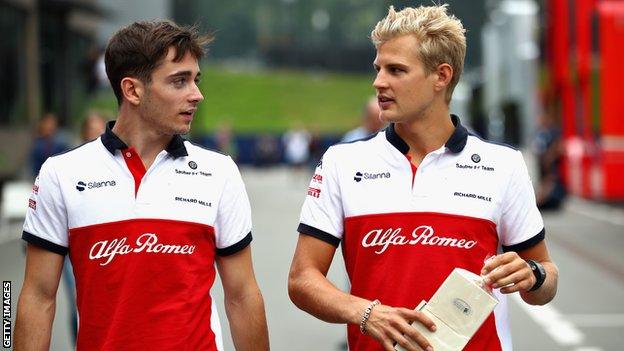
'You're off where, mate?'
Is he aware of the impact he is making?
"No, not really," he says, with a slightly embarrassed-looking smile. "Everyone is saying it's incredible, it is definitely good but I am probably not aware."
His performances are drawing comparisons with great drivers of the past who started their careers in average cars and impressed nonetheless - Alain Prost, Ayrton Senna, Fernando Alonso, to name but three.
What does he think of that, this writer asked him?
"I am far from what they achieved," he said. "They are greats in F1 and they have proven themselves. I still need to work and it is also difficult to compare because it is different eras. I find it… for me it is not something normal to compare me with these greats."
Maybe not now. But - early days though it is - if Leclerc carries on like this, it could become normal sooner than he might think.
How does a super expensive F1 steering wheel work?
Politics intensify
A little over a month ago, it had seemed that an agreement was close on at least one part of the complex negotiations revolving around the future of F1, between new owners Liberty Media, the teams and the FIA.
The car manufacturers had agreed to drop the controversial MGU-H from the engines as part of a drive to simplify them and reduce costs for new rules to be introduced from 2021.
But now things have changed, and an agreement that was supposed to be concluded by the end of last month has fallen apart.
The manufacturers have withdrawn from their previous position and are insisting again on the retention of the MGU-H, the part of the hybrid system that recovers energy from the turbo, and which is responsible for the engines' revolutionary efficiency levels. They want to stick with these engines but increase revs and remove restrictions on fuel flow and capacity.
The MGU-H was being ditched partly to try to attract new manufacturers, particularly Porsche. But now it appears Porsche is almost certainly not going to enter - and nor are any private companies, including Aston Martin, who keep talking about the idea, but who few in F1 believe has the funds or technical capability to produce its own engine.
In which case, some argue, why change the engines at enormous cost if the same four companies will be supplying them?
On top of that, after years of it appearing as if the MGU-H might not make it to road cars, emissions targets are said to be making it attractive again.
F1's position remains that the engines are over-complex and too expensive and that keeping them makes it impossible for anyone else to enter even if they wanted to, an unhealthy place to be.
Sporting boss Ross Brawn refused to comment, beyond saying that talks were "at a delicate stage".
Meanwhile, discussions over a redistribution of prize money are also a long way from concluded, even if they are said to be inching in the right direction.
Clearly, no conclusion is close, and there is a lot of painful ground to be covered before it is.
- Published6 July 2018
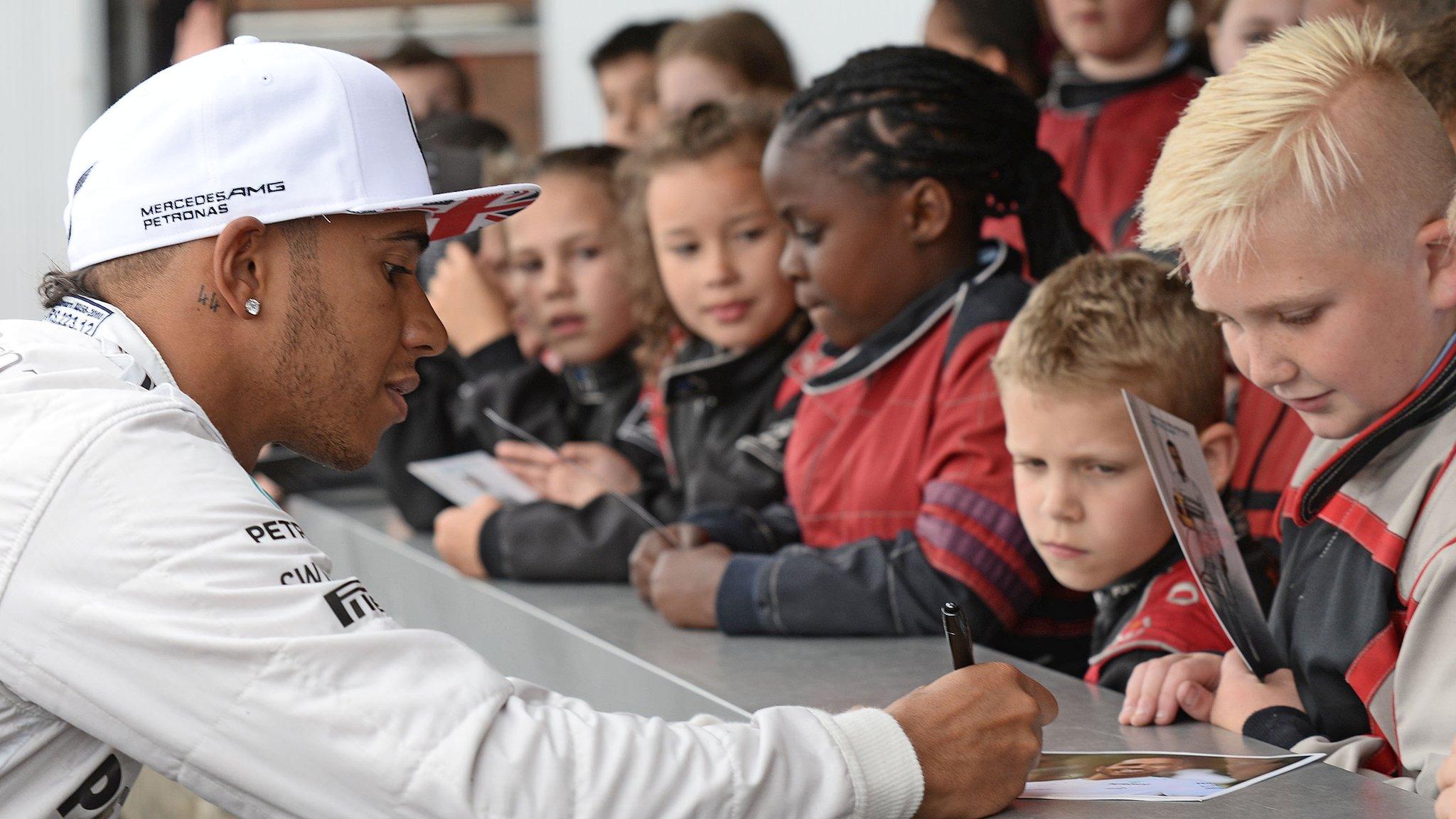
- Published5 July 2018
